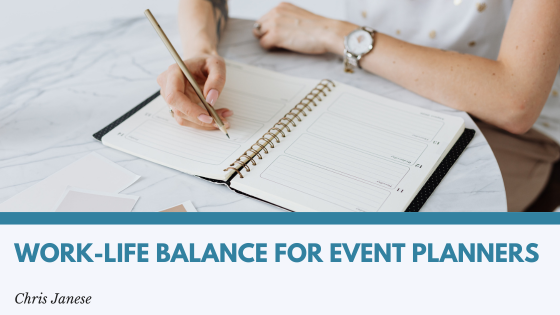In event planning, where deadlines loom extensive and details reign supreme, achieving a harmonious work-life balance can often feel daunting. Yet, amidst the whirlwind of coordinating venues, managing budgets, and orchestrating logistics, finding equilibrium is essential for personal well-being and maintaining peak performance and creativity in the professional sphere.
The first step towards achieving work-life balance as an event planner is recognizing the inherent challenges of the industry. Event planning is notorious for its unpredictable schedules, demanding clients, and high-pressure situations. It’s a profession that thrives on adaptability and resilience, undoubtedly valuable traits that can lead to burnout if not managed effectively. Understanding these challenges allows planners to implement strategies to mitigate stress and maintain equilibrium proactively.
One of the most effective strategies for fostering work-life balance is the art of time management. Event planners juggle numerous tasks simultaneously, from vendor negotiations to attendee logistics. Prioritizing tasks, setting realistic deadlines, and delegating responsibilities can help prevent overwhelming workloads and ensure that personal time remains sacrosanct. Embracing digital tools and platforms designed for project management and communication can further streamline workflows, allowing planners to optimize their time and energy more efficiently.
Moreover, establishing clear boundaries between work and personal life is imperative for maintaining balance. While the nature of event planning often blurs these boundaries, setting designated work hours and unplugging during off-hours can prevent work from encroaching on precious personal time. Additionally, cultivating hobbies and interests outside work provides much-needed mental respite and fuels creativity and inspiration, ultimately enhancing professional performance.
Communication is another cornerstone of achieving work-life balance as an event planner. Transparent communication with clients, colleagues, and vendors fosters mutual understanding and reduces misunderstandings that can lead to unnecessary stress. To manage clients ‘ expectations and avoid last-minute crises, it’s essential to communicate expectations regarding availability, response times, and workload upfront.
Furthermore, embracing a self-care mindset is essential for sustaining long-term success in the event planning industry. Prioritizing physical health through regular exercise, proper nutrition, and adequate sleep boosts energy levels and enhances cognitive function and resilience to stress. Equally important is nurturing emotional well-being through mindfulness practices, hobbies, and spending quality time with loved ones.
Achieving work-life balance as an event planner requires a multifaceted approach encompassing effective time management, clear boundaries, open communication, and self-care practices. Balancing the scales between work and life is a luxury and a necessity for thriving in the fast-paced world of event planning.
